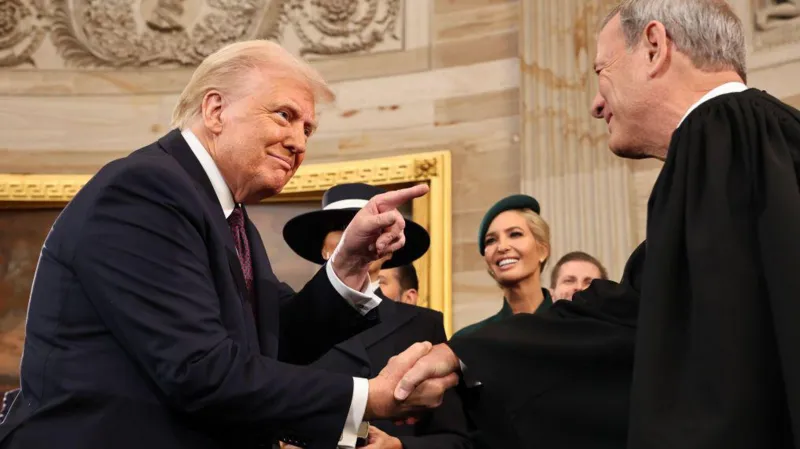

U.S. Supreme Court Chief Justice John Roberts has issued a rare public statement following President Donald Trump’s call to impeach a federal judge who ruled against his administration’s deportation efforts.
“For more than two centuries, it has been established that impeachment is not an appropriate response to disagreement concerning a judicial decision,” Roberts said, adding that the appropriate channel for challenging court rulings is through the appellate review process.
EDITOR’S PICKS
His comments came after Trump lashed out at U.S. District Judge James Boasberg, who ordered the administration to halt deportations of over 200 Venezuelans accused of gang affiliation. Trump referred to Boasberg as a “troublemaker and agitator” and demanded his impeachment via a post on Truth Social, stating, “HE DIDN’T WIN ANYTHING! I’m just doing what the VOTERS wanted me to do.”
The White House did not immediately respond to requests for comment.
Roberts, who generally avoids public statements on political matters, last made headlines for authoring the majority opinion in Trump’s presidential immunity case, which expanded the protections of sitting presidents against criminal prosecution for official acts.
Trump’s call for Judge Boasberg’s impeachment marks the latest escalation in his ongoing attacks on members of the judiciary who have ruled against him. Since taking office, Trump has frequently criticised judges who have blocked his policies and has called for the removal of several, often with the support of political allies like tech billionaire Elon Musk.
Trump Canada G7 Summit
Removing a federal judge through impeachment is rare and requires a two-thirds majority vote in the Senate following a House trial. In U.S. history, only 15 judges have faced impeachment proceedings, and just eight were convicted by the Senate.
The conflict stems from Judge Boasberg’s recent ruling, which ordered a halt to the deportation of Venezuelans to El Salvador. After learning that flights had already departed, Boasberg reportedly issued a verbal order for them to turn back “immediately,” although this was not included in his official written decision. The judge later convened a hearing to question administration lawyers on why the deportees had not been returned, prompting government attorneys to confirm that deportations were paused. The Trump administration also filed a motion seeking Boasberg’s removal from the case.
Despite attacking judges like Boasberg, Trump has consistently praised those he perceives as supportive, including U.S. District Judge Aileen Cannon, who dismissed his classified documents case. His relationship with Chief Justice Roberts has also warmed since Roberts backed Trump’s presidential immunity claim, a ruling that bolstered Trump’s position in multiple legal battles during his previous term.
Roberts’ statement underscores the judiciary’s effort to remain above partisan politics, even as the Supreme Court prepares to hear future legal challenges stemming from the Trump administration’s actions. The Chief Justice’s response is a rare public defence of judicial independence against political pressure from the White House.
Watch Our Video Of The Week
Iran’s Warning: Adviser to Ayatollah Khamenei, Ali Larijani, warns that Iran may pursue nuclear…
Liver cancer has a low survival rate, especially when it spreads. Symptoms include weight loss,…
Eredo LCDA youth leaders endorse Hon. Monsuru Akinloye for a second term. Declaration made during…